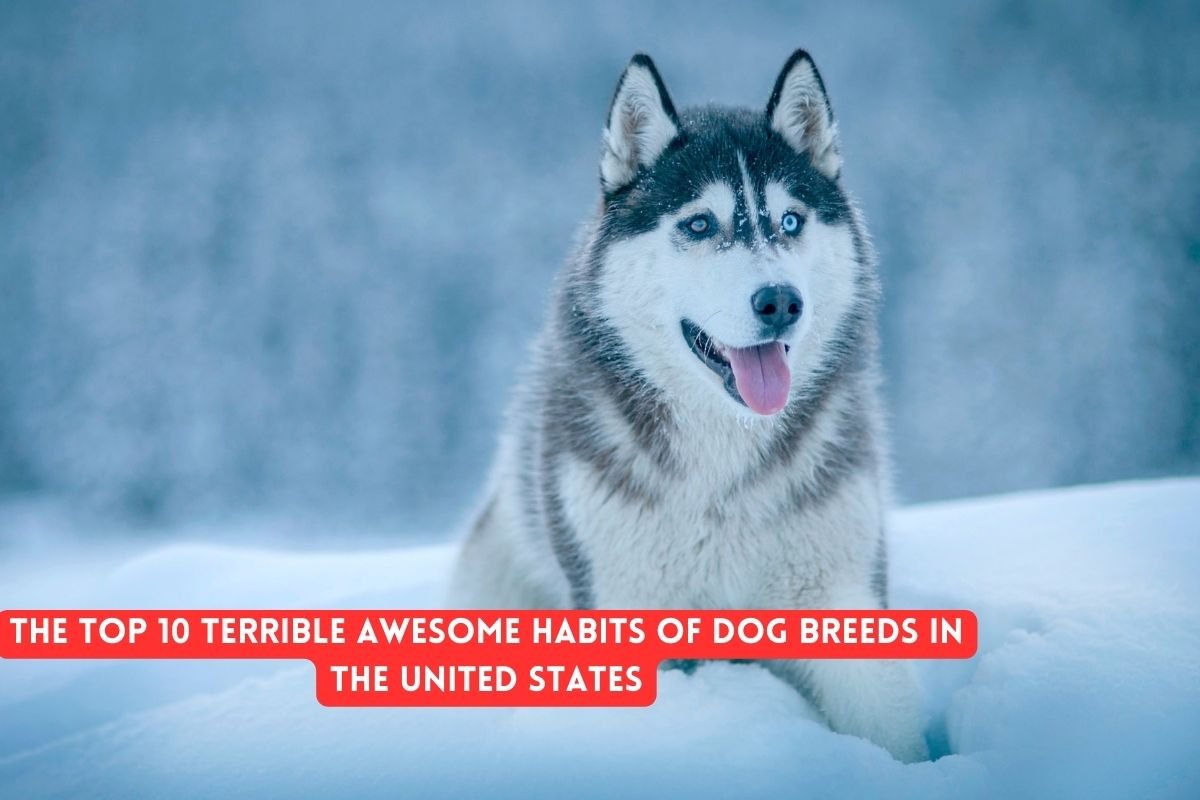Dogs are undoubtedly man’s best friend, providing companionship, loyalty, and endless joy. However, each dog breed has its own set of habits that can be both endearing and frustrating. Understanding these traits is essential for prospective dog owners. Here, we explore the top 10 dog breeds in the United States and their most notable habits, which can be seen as both terrible and awesome, depending on the perspective. However, their adventurous and energetic nature is perfect for active owners who enjoy outdoor activities and exercise.
Labrador Retriever
Labradors are known for their relentless chewing, which can result in destroyed shoes and furniture. However, their cheerful and friendly nature makes them fantastic companions, especially for families with children.
German Shepherd
German Shepherds can become overly protective of their families, sometimes leading to aggressive behavior towards strangers. On the flip side, their intelligence and trainability make them exceptional working dogs in roles such as police and service dogs.
Beagle
Beagles are notorious for their loud and frequent barking, which can be a nuisance in quiet neighborhoods. Despite this, their playful and curious nature makes them delightful pets, especially for active households.
Bulldog
Bulldogs are known for their stubborn streak, often resisting commands or training efforts. However, their calm demeanor and love for snuggling make them perfect for those looking for a low-energy, affectionate pet.
Poodle
Poodles require frequent grooming to keep their coats in top condition, which can be time-consuming and costly. Nonetheless, their hypoallergenic fur makes them a great choice for allergy sufferers, and their intelligence and trainability are exceptional.
Rottweiler
Rottweilers can appear intimidating and may be perceived as aggressive, which can cause unease among strangers. However, their loyalty and protective instincts are unparalleled, making them excellent guardians for their families.
Dachshund
Dachshunds love to dig, which can wreak havoc on gardens and yards. Yet, their affectionate and playful personality makes them wonderful companions, particularly for those with smaller living spaces.
Siberian Husky
Siberian Huskies are escape artists, often finding ways to flee their homes or yards. However, their adventurous and energetic nature is perfect for active owners who enjoy outdoor activities and exercise.
Chihuahua
Chihuahuas are prone to nervousness and can be yappy, especially around strangers. Despite this, their small size and portability make them great for city living and for owners who travel frequently.
Boxer
Boxers are incredibly energetic and can be too rambunctious for some owners. However, their playful and affectionate demeanor makes them fantastic companions for families with children who can match their energy levels.
Conclusion
Every dog breed comes with its own set of quirks that can be seen as either terrible or awesome, depending on one’s perspective and lifestyle. While some habits might require extra patience or adjustment, the joy and companionship dogs bring to our lives far outweigh the challenges. Understanding these habits helps in making informed decisions about which breed is the right fit for your home and lifestyle.
FAQs
Which dog breed is best for families with children?
Labradors and Boxers are excellent choices for families with children due to their friendly and playful nature.
Are there dog breeds suitable for people with allergies?
Poodles are a great option for allergy sufferers due to their hypoallergenic coats.
What should I do if my dog has a habit of excessive barking?
Training and positive reinforcement, along with providing enough exercise and mental stimulation, can help reduce excessive barking.
Which breed requires the most grooming?
Poodles and other long-haired breeds require frequent grooming to maintain their coats.
How can I prevent my Husky from escaping?
Ensuring a secure, high-fenced yard and providing ample exercise can help prevent a Husky from attempting to escape.
